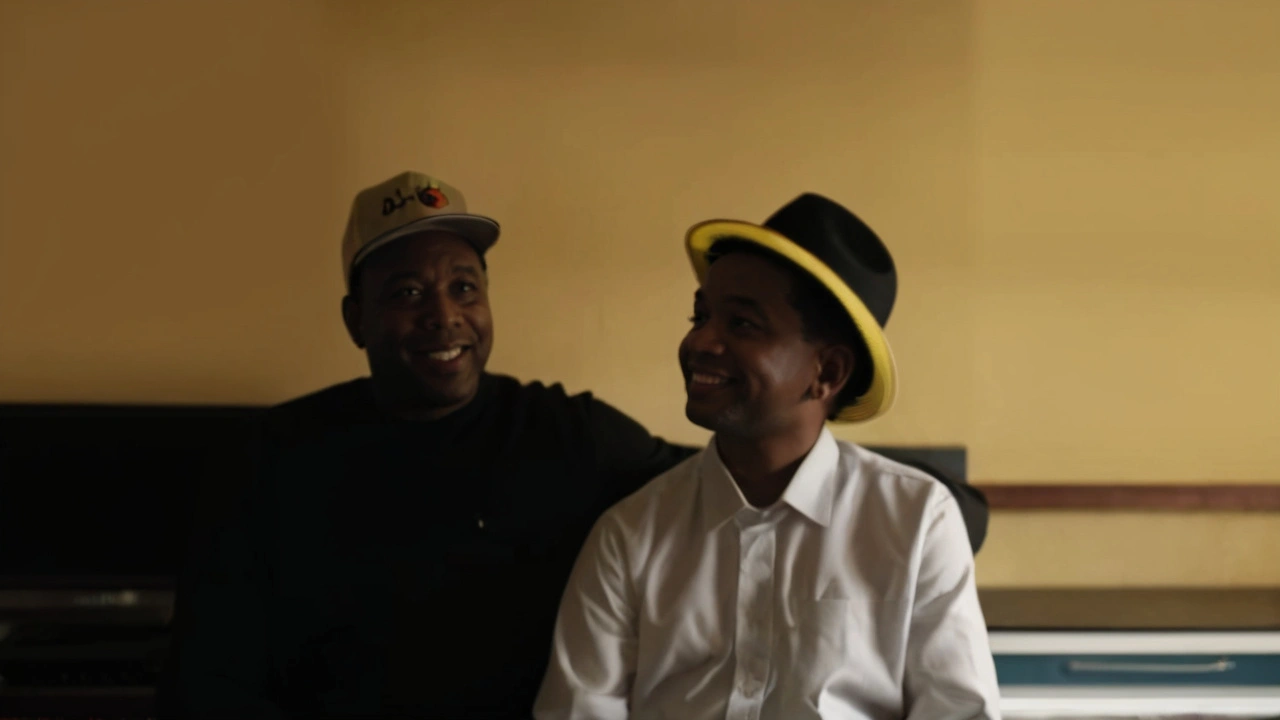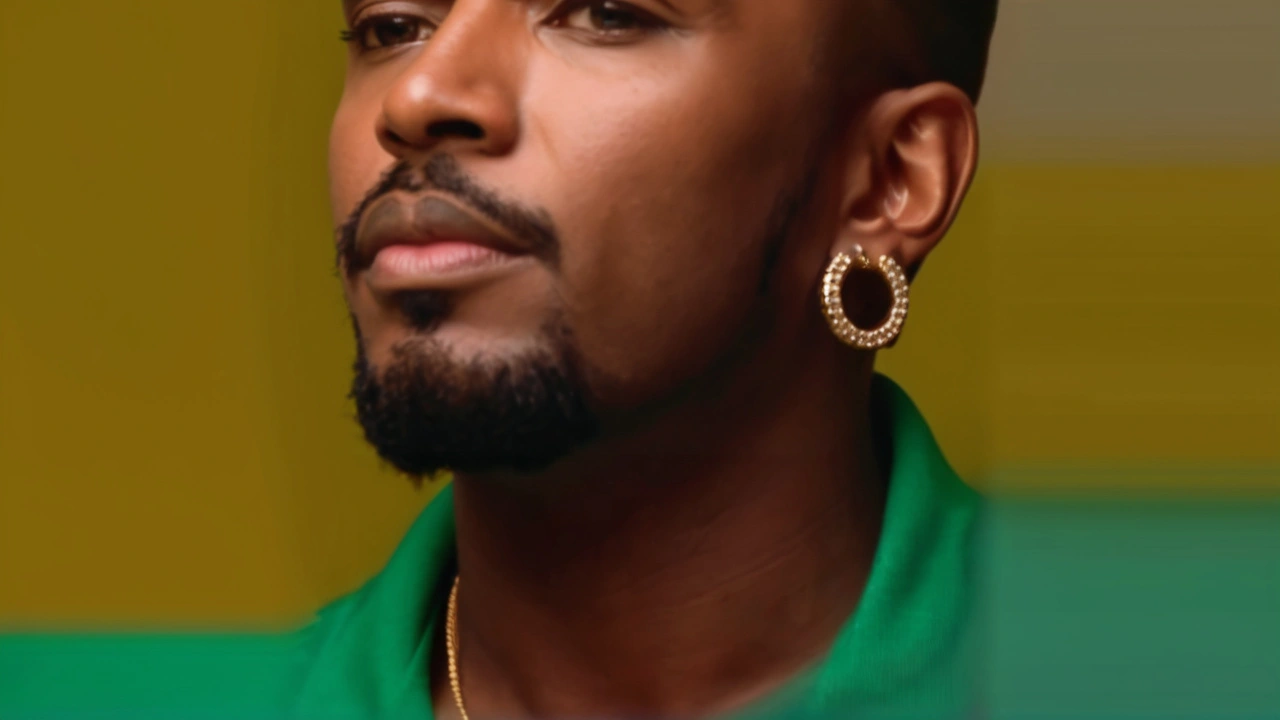Nigerian Comedian Brain Jotter Under Fire for Viral Song Compensation
Nigerian comedian Brain Jotter, whose real name is Chukwuebuka Emmanuel Amuzie, recently used Gentleman Mike Ejeagha's 41-year-old highlife song 'Gwo Gwo Gwo Ngwo' in a viral dance challenge. This challenge garnered immense popularity, not only among his fans but also among Nigerian celebrities and the general public. The song, originally released in 1983, has experienced an unexpected resurgence thanks to Brain Jotter's viral content.
On social media platform X, formerly known as Twitter, a prominent lawyer who goes by the moniker Foundational Nupe Lawyer, voiced objections to the way Brain Jotter handled the rights and compensation related to the song. Brain Jotter had shared a screenshot showing that he had transferred N2 million to Gentleman Mike Ejeagha as a form of compensation for using his song. However, this move has not sat well with some individuals, particularly those in the legal and artistic communities.
Lawyer Questions Fairness of Compensation
The Foundational Nupe Lawyer’s primary argument revolves around whether the N2 million compensation is sufficient. According to him, Brain Jotter's actions may superficially appear generous, but they fall short of what Gentleman Mike Ejeagha deserves for his work. The lawyer suggests that Ejeagha, now 93 years old, needs a good legal advisor to help him understand the true value of his intellectual property, especially given the song's newfound popularity.
Further criticisms have emerged, questioning the fairness of the compensation in light of the millions Brain Jotter has reportedly accumulated from content leveraging the viral nature of the song. These criticisms have sparked widespread debate on social media platforms, highlighting the broader issue of intellectual property rights, especially concerning older works that gain new attention through modern digital channels.

Public Reactions: Mixed Opinions
The public's response to this controversy has been mixed. Some individuals have lauded Brain Jotter for his efforts to compensate Gentleman Mike Ejeagha, arguing that the gesture itself should be appreciated, given that many in similar situations might not have taken any steps to acknowledge the original creator. Conversely, others believe that Brain Jotter’s gesture is insufficient and does not do justice to Ejeagha’s artistic contributions.
Debates continue to rage on platforms like Twitter, Instagram, and Facebook, with various camps forming around the issue. Those defending Brain Jotter argue that his willingness to offer compensation—regardless of the amount—is a positive sign in the industry. On the other hand, critics emphasize that such gestures should be in line with the actual value generated by the artist’s work.
The Artist: Gentleman Mike Ejeagha
The situation has also shone a spotlight on the life and career of Gentleman Mike Ejeagha, an acclaimed musician who has been a stalwart of Nigerian highlife music. Born in 1930, Ejeagha enjoyed considerable success throughout his career but had receded from the public eye until this recent viral phenomenon. His music, characterized by thoughtful lyrics and melodious compositions, continues to resonate with audiences today.
The 93-year-old artist, who released 'Gwo Gwo Gwo Ngwo' in 1983, has suddenly found himself back in the limelight. This revived interest in his work has prompted discussions about older musicians and how they should be adequately compensated when their work is used in modern contexts. Ejeagha’s case underscores the necessity for proper legal frameworks to protect the rights of artists, especially those from earlier generations who may not be fully aware of their intellectual property’s current value.

The Broader Context: Intellectual Property Rights
This controversy serves as a microcosm for larger issues related to intellectual property (IP) rights in the digital age. With the proliferation of social media, older works can achieve viral status quickly, but this often leads to complex questions about rights and fair compensation. In many cases, original creators may not be fully aware of how to navigate these modern complexities.
Intellectual property laws have struggled to keep pace with the rapid technological advancements that enable instant sharing and virality. While some countries have more robust frameworks, others lag, and many artists—particularly those from older generations—find themselves at a disadvantage.
The criticism levied against Brain Jotter highlights a broader need for education and resources for artists to protect their work. It calls into question how platforms that benefit from viral content can also contribute to ensuring creators are justly compensated.
Conclusion: A Call for Fair Compensation and Respect
The case of Brain Jotter and Gentleman Mike Ejeagha brings forth critical discussions about compensation, respect, and the value of intellectual property in our modern digital landscape. It serves as a reminder that behind every viral trend or popular content, there is often an original creator whose contributions deserve recognition and fair treatment.
As debates continue and more voices chime in, it becomes increasingly clear that the entertainment industry must evolve to address these concerns. Whether through legal reforms, more equitable compensation structures, or increased awareness among content creators and consumers, change is necessary to ensure that artists receive the respect and remuneration they rightfully deserve.
Ultimately, as the landscape of digital content continues to evolve, so too must our approach to intellectual property rights. While Brain Jotter's gesture may have been well-intentioned, it serves as a poignant example of the complexities and challenges that arise in the quest for fairness and justice in the world of media and entertainment.







Nadine Taylor July 23, 2024
Honestly? I'm glad he paid anything. So many people just steal and never look back. N2 mil might seem low to some, but for a 93-year-old man who's been out of the spotlight for decades? That's life-changing money. Let's not turn gratitude into guilt.
Also, Nigerian artists have been getting ripped off for decades by international labels and platforms. At least this guy tried.
jessica doorley July 24, 2024
While the gesture of compensation is commendable, it is imperative to recognize that the equitable valuation of intellectual property must be commensurate with the economic value generated through its exploitation. The viral nature of the content has undoubtedly generated substantial revenue streams, and a fixed sum, regardless of its nominal magnitude, may constitute an insufficient remuneration under the principles of distributive justice and copyright law.
Christa Kleynhans July 24, 2024
N2 million is pocket change when you consider how many views that dance challenge got. People are making millions off this and the guy who made the song is 93 and probably can't even use a smartphone
It's not about being greedy it's about respect. If you're gonna ride someone's legacy to fame you better make sure they're not sleeping in a house with a leaky roof
Kevin Marshall July 25, 2024
I see both sides 😔
On one hand, paying anything at all is more than most would do. On the other, if you're making millions off a 40-year-old song, you owe more than a one-time payment. Maybe set up a royalty deal? Or fund a music scholarship in his name?
He deserves more than a check. He deserves a legacy.
Eve Armstrong July 25, 2024
This is textbook IP misalignment in the digital content economy. The original work is a cultural artifact with enduring value, yet monetization occurs via algorithmic virality-platforms profit, influencers capitalize, and the originator is treated as a footnote. What's needed is a decolonized IP framework that recognizes non-Western, non-digital-native creators as equal stakeholders. The N2 million isn't the issue-it's the systemic erasure.
Lauren Eve Timmington July 25, 2024
Let’s be real. This isn’t about fairness. It’s about power. The guy who made the song is 93 and likely doesn’t have a lawyer or even a manager. Meanwhile, Brain Jotter’s team is probably sitting in a Lagos studio negotiating brand deals. Paying N2 million is PR. It’s not justice. It’s damage control.
Shannon Carless July 26, 2024
Lmao he paid him 2 million? That’s like giving a homeless guy $5 and calling it charity. 😂
JIM DIMITRIS July 27, 2024
Honestly? I'd rather see him give the guy a new house and a monthly stipend than a one-time payment. The song's still out there. It's not like it's gonna stop going viral. This guy deserves to live like a king now, not just get a nice bonus.
Wendy Cuninghame July 28, 2024
This is part of the globalist agenda to undermine African cultural sovereignty. Western legal frameworks are being weaponized to extract value from African creators while forcing them to bow to foreign standards. The real crime is that the Nigerian media isn't screaming about this. Who benefits? The same people who told us to stop speaking pidgin.
Samba Alassane Thiam July 29, 2024
N2 million? In Nigeria that’s like paying someone $1,000 in the US for a billion-dollar idea. Classic 'we’re still in 2005' thinking. You don’t fix a systemic problem with a one-off check. You fix it with structure.
Patrick Scheuerer July 30, 2024
The real tragedy isn't the compensation-it's the silence. A man who shaped a generation's sound is now a footnote in a viral meme. We celebrate the amplifiers but forget the source. This is not about money. It is about memory. It is about the quiet dignity of those who built the foundations while we dance on their roofs.